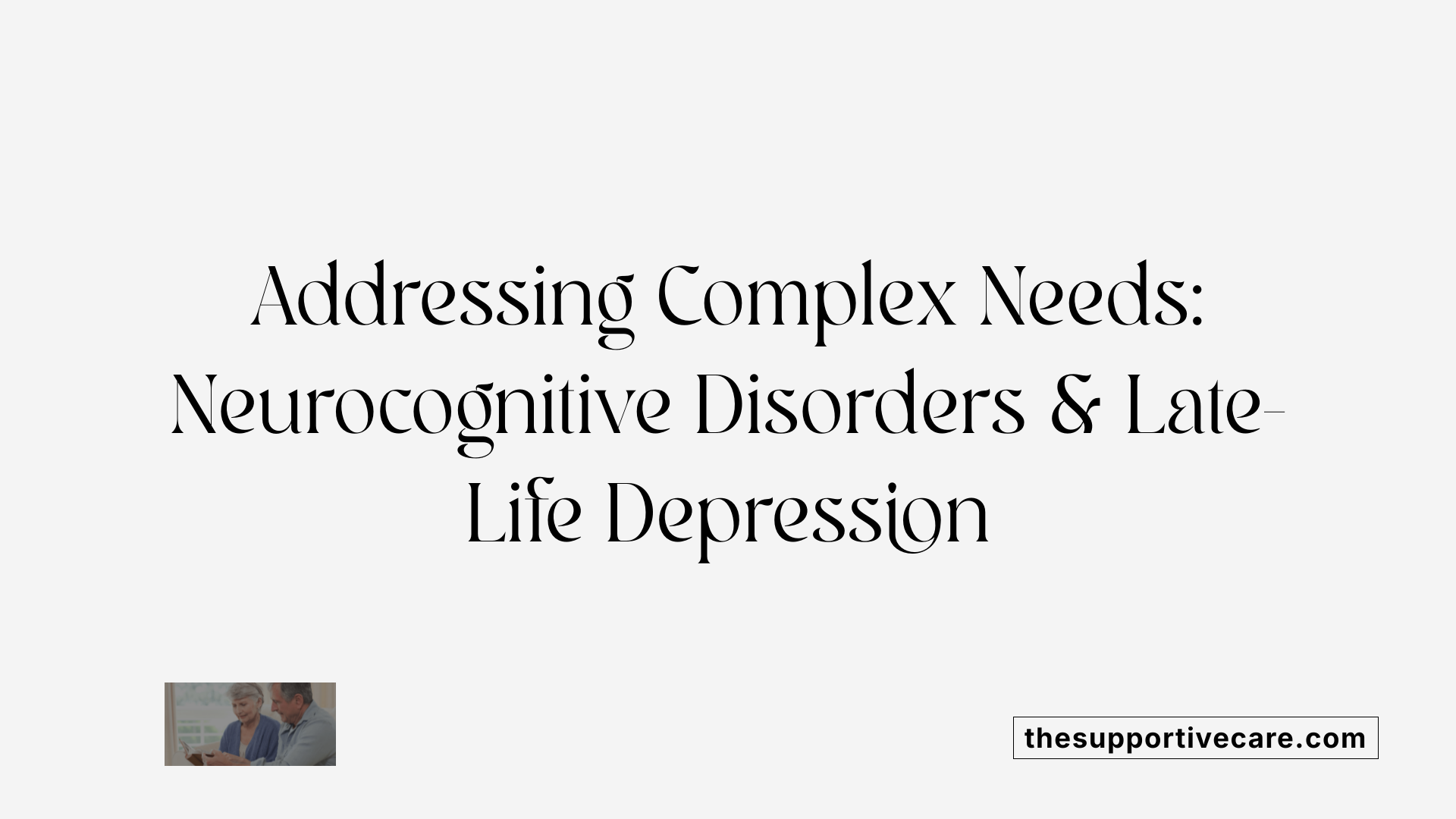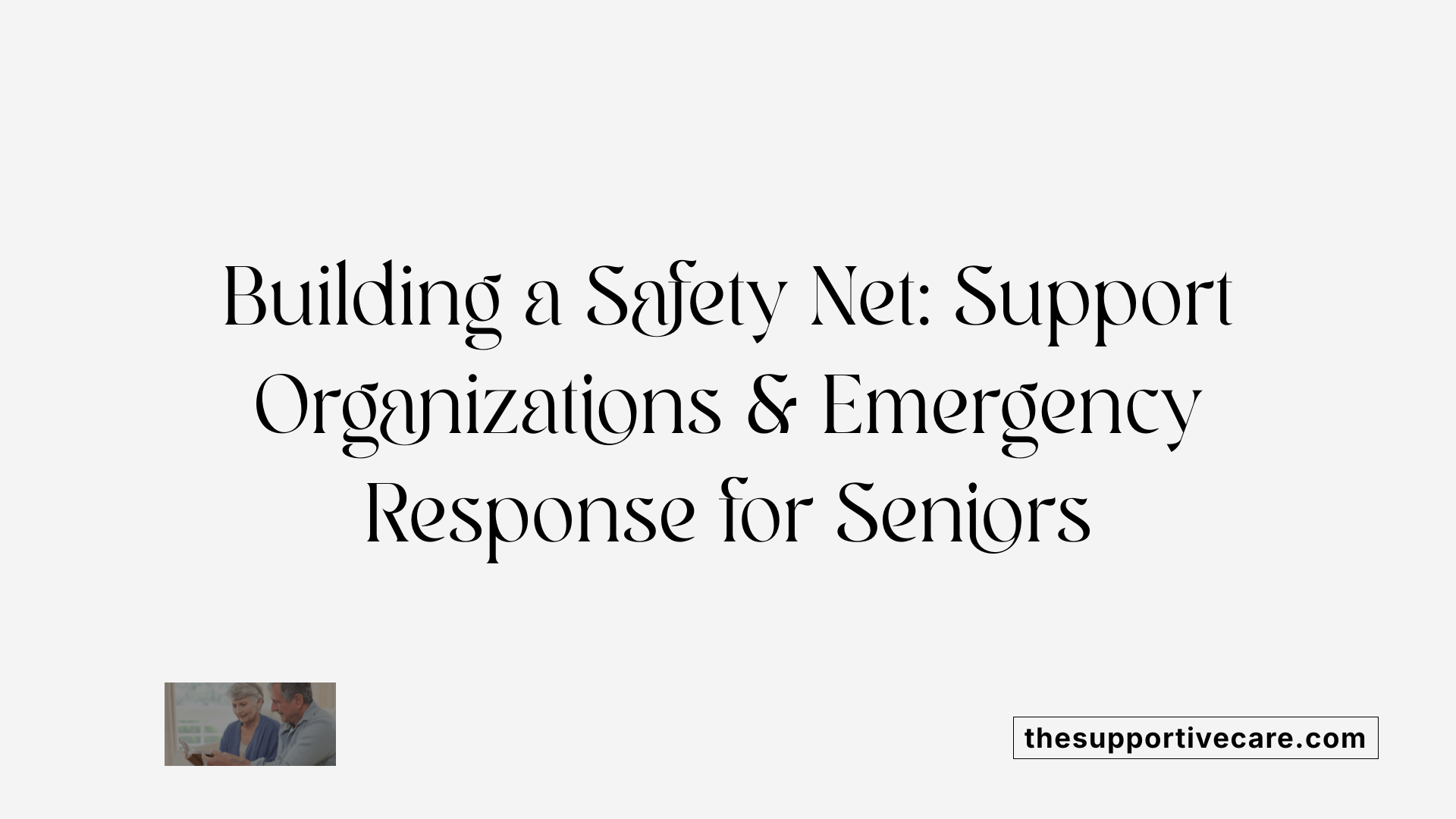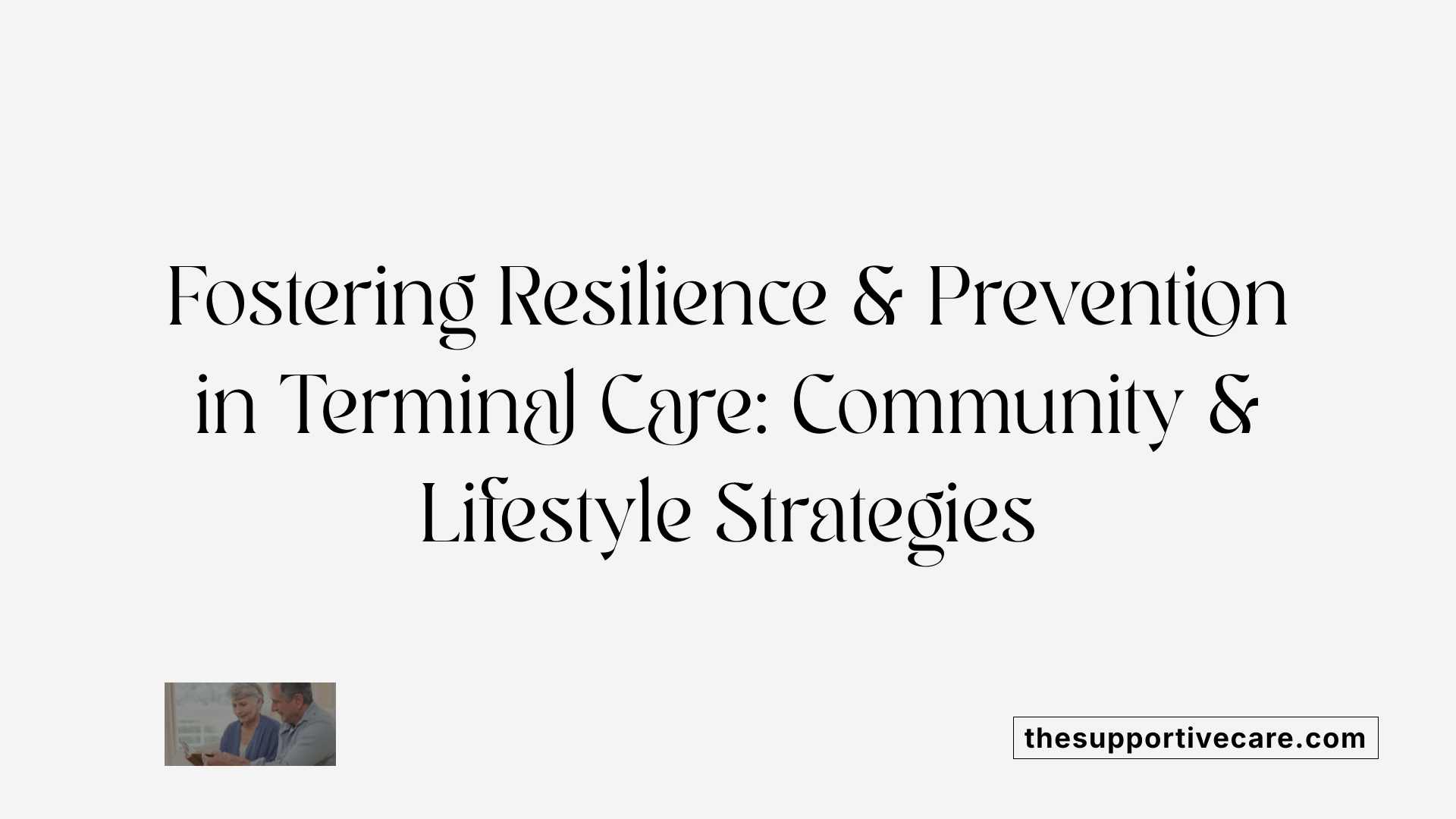Understanding the Psychological Needs of Seniors with Terminal Illness
As the population ages, addressing the psychological health of seniors facing terminal illnesses becomes increasingly vital. Complex interactions between mental health disorders, substance use, and chronic physical conditions require comprehensive and compassionate care strategies. This article explores the multifaceted psychological services and supports essential for improving quality of life among seniors with terminal diagnoses, focusing on integrated treatment approaches, community resources, and emerging innovations in care.
Comprehensive Treatment Approaches for Mental Health and Substance Use in Seniors

What comprehensive treatment services are available for substance abuse, mental health issues, and various forms of addiction?
Comprehensive treatment services for seniors struggling with substance abuse, mental health issues, and addiction are designed to meet a range of needs through an integrated approach. These include medical detoxification, which safely manages withdrawal symptoms. Therapy options encompass both individual and group counseling to address psychological and social challenges.
Medication-assisted treatments such as naltrexone for substance use disorders, including opioid addiction, are commonly employed alongside behavioral therapies. Agencies like SAMHSA provide significant funding to support these programs, ensuring evidence-based care and prevention resources are available.
Crisis support plays a vital role, with resources like the 988 Suicide & Crisis Lifeline and the Disaster Distress Helpline offering 24/7 immediate assistance. Peer support groups and community-based recovery services, such as those under the RecoverMe campaign and Kansas's Recovery Oriented Systems of Care (ROSC), further reinforce ongoing recovery efforts.
How do medical detoxification, therapy, counseling, and medication-assisted treatment contribute to senior care?
Medical detoxification helps safely manage physical dependence, preventing complications during initial treatment phases. Therapy and counseling provide emotional and psychological support focused on understanding triggers, building coping skills, and fostering motivation for change.
Medication-assisted treatments complement these approaches by reducing cravings and withdrawal symptoms, improving adherence to recovery plans. This holistic care model recognizes the complex interplay between aging, physical health, mental illness, and substance use disorders.
Why is coordinated, multidisciplinary care essential for older adults, especially those with terminal illness?
Older adults with mental health and substance use disorders often face coexisting physical diseases and disabilities. Coordinated, multidisciplinary care involving physicians, mental health specialists, addiction counselors, and social workers is essential to address the full spectrum of needs.
For seniors with terminal illnesses, integrating behavioral health treatment with palliative care promotes dignity, comfort, and quality of life. Programs offer tailored interventions that respect the individual's medical condition, personal goals, and social support systems.
This comprehensive framework helps reduce relapse risk, manage neuropsychiatric symptoms, and address social determinants like isolation and caregiver support, ultimately supporting successful aging even in vulnerable populations.
Addressing the Unique Mental Health Challenges of Terminally Ill Seniors

How do mental disorders co-occur with physical conditions in older adults?
Older adults with mental disorders often experience a significant burden due to coexisting physical illnesses. This combination can lead to increased disabilities, reduced functioning, and a more complex clinical picture. Multidisciplinary assessments and comprehensive treatment approaches are essential to address both mental and physical health needs effectively.
What is the impact of neurocognitive disorders and late-life depression?
Neurocognitive disorders, including dementia and mild neurocognitive impairment, represent major sources of disability in older adults. Symptoms such as memory loss and behavioral changes compromise daily functioning. Late-life major depression also significantly affects older adults, impairing functioning and often co-occurring with physical health conditions. Untreated depression may increase the risk of developing dementia.
What roles do early diagnosis, biomarker advances, and non-pharmacological strategies play?
Early diagnosis of neurocognitive disorders is advancing with biomarkers detecting amyloid and tau proteins in cerebrospinal fluid and blood, improving the accuracy of diagnosis. Non-pharmacological strategies are preferred to manage distressing neuropsychiatric symptoms in dementia due to the risk of side effects from medications like antipsychotics. Early detection and tailored treatment, including psychosocial interventions, offer improved outcomes.
What are the challenges in detecting and treating substance use disorders in older populations?
Substance use disorders in older adults are often under-recognized but contribute significantly to health decline. Tools like AUDIT-C and CAGE-AID screening questionnaires facilitate detection. Targeted brief interventions and medications such as naltrexone can effectively treat these disorders. Integrating substance use treatment with mental health care is crucial for this vulnerable group, especially for terminally ill seniors facing complex health challenges.
Critical Support Systems and Crisis Intervention Services

Availability of 24/7 Crisis Helplines
Access to immediate mental health support is crucial, particularly for seniors who may experience acute crises. The 988 Suicide & Crisis Lifeline provides round-the-clock emergency counseling and intervention. Additional helplines, such as the Disaster Distress Helpline and SAMHSA’s National Helpline, offer confidential and anonymous support for mental health and substance use disorders.
Mobile Crisis Interventions and Community-Based Psychiatric Services
Programs like the Georgia Crisis & Access Line (GCAL) dispatch mobile crisis teams across numerous counties to provide urgent psychiatric assessments and interventions in home settings. These services address critical issues like suicide ideation, violent threats, and altered mental states, ensuring seniors and other individuals receive timely, on-site care that reduces hospitalization rates.
Support Organizations for Patients and Caregivers
The National Alliance on Mental Illness (NAMI) offers valuable support, education, and advocacy for individuals with mental illnesses and their families. For caregivers, resources such as the Rosalynn Carter Institute for Caregiving provide tailored assistance and training, helping them manage the complex needs of care recipients effectively.
Integration with Ongoing Behavioral Health Care for Seniors
Crisis interventions are integrated with comprehensive behavioral health services, including outpatient and intensive outpatient programs covered by Medicare Parts A, B, and D. This continuum ensures that seniors not only receive emergency support but also access prevention, ongoing treatment, and recovery services essential for sustained mental health and well-being.
Table of Crisis Intervention and Support Services for Seniors
| Service | Description | Availability |
|---|---|---|
| 988 Suicide & Crisis Lifeline | 24/7 emergency counseling and crisis support | Nationwide |
| Georgia Crisis & Access Line (GCAL) | Mobile crisis teams providing home-based urgent psychiatric care | Georgia (159 counties) |
| NAMI | Support, education, and advocacy for mental illness | Nationwide |
| Rosalynn Carter Institute | Caregiver support and training for mental health challenges | Nationwide |
| Medicare Behavioral Health Coverage | Inpatient, outpatient treatment, medication, and preventive screenings | Nationwide |
Together, these critical support systems create a safety net that addresses immediate crises and supports ongoing mental health care, particularly for seniors facing terminal illnesses or complex behavioral health challenges.
The Role of Medicare and Public Funding in Supporting Treatment Access

How does Medicare support behavioral health treatment?
Medicare offers extensive coverage for behavioral health services essential to treating mental health conditions and addiction. Part A covers inpatient hospital stays, skilled nursing facilities, and hospice care that address acute mental health needs. Part B supports outpatient services, preventive screenings such as depression and opioid use disorder screenings, and intensive outpatient program services. Additionally, Part D provides prescription drug coverage, ensuring access to medications essential for managing mental health and addiction.
What federal funding initiatives enhance treatment availability?
The Substance Abuse and Mental Health Services Administration (SAMHSA) plays a crucial role by allocating significant funding toward substance use and mental health programs. For FY25, SAMHSA allocated over $1.5 billion for state and tribal opioid response grants, aiming to combat opioid addiction. Furthermore, targeted funding supports hepatitis C elimination efforts in populations affected by addiction and mental illness, reflecting integrated healthcare approaches.
How do medications factor into Medicare’s mental health and addiction treatment?
Medicare Part D covers a wide range of medications for mental health conditions, including antidepressants and antipsychotics, facilitating comprehensive medication management. It also supports medications for addiction treatment such as buprenorphine, methadone, and naltrexone, enhancing recovery outcomes.
Why is federal and state program support vital for care delivery?
Federal and state-funded programs complement Medicare coverage by providing additional resources such as crisis helplines (e.g., 988 Suicide & Crisis Lifeline), mobile crisis services, and community-based recovery initiatives. These programs improve treatment access, ensure timely intervention, and support a network of care that integrates medical, psychiatric, and social services for seniors managing mental health and addiction issues.
Promoting Recovery, Prevention, and Resilience in Terminal Care

What preventive measures support mental health in terminal care?
Preventive strategies such as education, physical activity, and careful control of vascular risk factors play a crucial role in supporting mental health among terminally ill seniors. Multi-domain lifestyle interventions, like those tested in the FINGER trial, can help delay or prevent cognitive decline, including dementia. These measures not only promote physical well-being but also contribute to maintaining cognitive functions.
How does community engagement influence mental health and aging?
Positive social determinants—including active community engagement, wisdom, resilience, and finding meaning in life—are strong contributors to successful aging and mental health. Encouraging terminally ill seniors to connect with their communities and participate in meaningful activities fosters emotional support and resilience, vital for enhancing quality of life.
What recovery-oriented systems and campaigns support substance use and mental health?
Recovery-oriented systems of care (ROSC) focus on community-partnered programs that provide comprehensive support for substance use and mental health challenges. Campaigns like RecoverMe specifically target young adults but underscore principles relevant to all ages, emphasizing accessible recovery support and linking individuals to resources. These initiatives highlight the importance of integrated treatment approaches addressing both mental health and addiction.
How do telehealth and confidential resources enhance access to care?
Telehealth services and confidential platforms such as FindTreatment.gov ensure that seniors—who may face mobility or privacy barriers—can access mental health and substance use disorder treatment conveniently and discreetly. These resources provide up-to-date information, connect users with specialized treatment providers, and support a broad range of therapeutic options, making recovery and prevention strategies more accessible.
Advancing Holistic Psychological Care for Seniors Facing Terminal Illness
An integrated approach to psychological care that addresses mental health, substance use, and addiction is essential to supporting seniors with terminal illnesses. Leveraging comprehensive treatment services, crisis intervention, public funding mechanisms, and community-based resources enables tailored care that honors the complexity of each individual's situation. Importantly, fostering resilience and engaging preventive strategies can enhance seniors' well-being and dignity throughout their remaining life. As healthcare systems continue to evolve, prioritizing accessible, evidence-based psychological services will be key to improving outcomes and quality of life for this vulnerable population.
References
- Home | SAMHSA - Substance Abuse and Mental Health ...
- Mental health care for older adults: recent advances and new ...
- Mental Health Resources | Georgia Department of Human ...
- Mental health & substance use disorders
- FindTreatment.gov: Home
- Services and Programs | Department for Aging and ...
- Mental Health Resources
- Home | SAMHSA - Substance Abuse and Mental Health ...



































































































